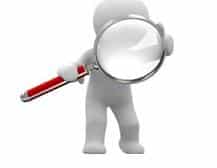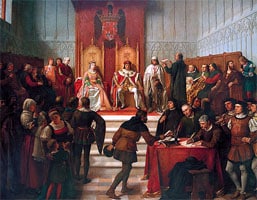SEER
Veedor is a term that can be used as an adjective to describe someone who is dedicated to observing, recording or controlling the actions of other people. As a noun, the concept refers to whoever has such activities as a trade .

For example: "The mother of the victim requested the presence of an overseer from the International Court of Justice to guarantee the transparency of the process" , "The European Union agreed to send overseers to control the electoral process in the Central American country" , "An observer will evaluate the performance of the referees on each date of the tournament . "
The overseers are in charge of monitoring that certain actions are carried out in accordance with the provisions of the regulations . That is why an overseer acts as an inspector, reviewer, inspector or verifier.
Throughout history, the oversight functioned in different ways and in different contexts. In the Middle Ages , the veedor was the one who controlled, in a Royal House , the food that was served to the lords. In this way, the veedor supervised the work of the pantry and the servants to analyze the expenses and guarantee the quality of the food purchased.
In other words, the role of the overseer was assumed by one of the servants of the royal house, and his main function was to control the food of his lords. The pantries, whom the overseer had to watch over, were subordinate to the major butler and are also known by the name of overseers of food ; they had to buy and store all food and then ration it into royal meals.
For the overseer had to make sure that the larders and buyers did not take advantage of their stalls to buy extra food and then resell it ; avoiding fraud was one of their main goals. On the other hand, he had to make sure that the handling of the food was carried out according to the indicated hygiene rules , and that the food was preserved properly.
Far were the tasks of the overseer to be simple; In order to carry out such thorough supervision, he had to be aware of the prices of products in the marketplace, where he often went. It is important to highlight the lack of contact that royals had with the people on whom their health depended , and that is why these intermediate positions were necessary , which carried the great responsibility of avoiding attacks or fatal errors.
Several centuries ago, the knowledge of medicine was not up to the present, nor were tools and drugs to treat many of the common diseases and infections. For this reason, poor diet or dehydration could have consequences that today would seem disproportionate.
 In 1494, for example, the Catholic Monarchs decided to visit Dona Isabel, in the company of the Prince and his sisters; To do this, they had to make a trip from Medina del Campo to Arévalo. The problem arose when the dust and intense heat forced them to consume all their water reserves long before reaching their destination, which cost the lives of three people.
In 1494, for example, the Catholic Monarchs decided to visit Dona Isabel, in the company of the Prince and his sisters; To do this, they had to make a trip from Medina del Campo to Arévalo. The problem arose when the dust and intense heat forced them to consume all their water reserves long before reaching their destination, which cost the lives of three people.
Since then, the role of the overseer included making sure there was no shortage of water on crossings of this kind. To do this, they brought a pair of mules or donkeys with the necessary resources so that humans did not dehydrate.
In a similar sense, the person who controlled the operation of the royal stables was also called an overseer, as was the military authority that inspected different matters of the armed forces.
The observers also act in the field of sport , supervising scoresheets, analyzing the role of the judges or referees, controlling the equipment used and fulfilling other functions according to the discipline in question.
Comments
Post a Comment